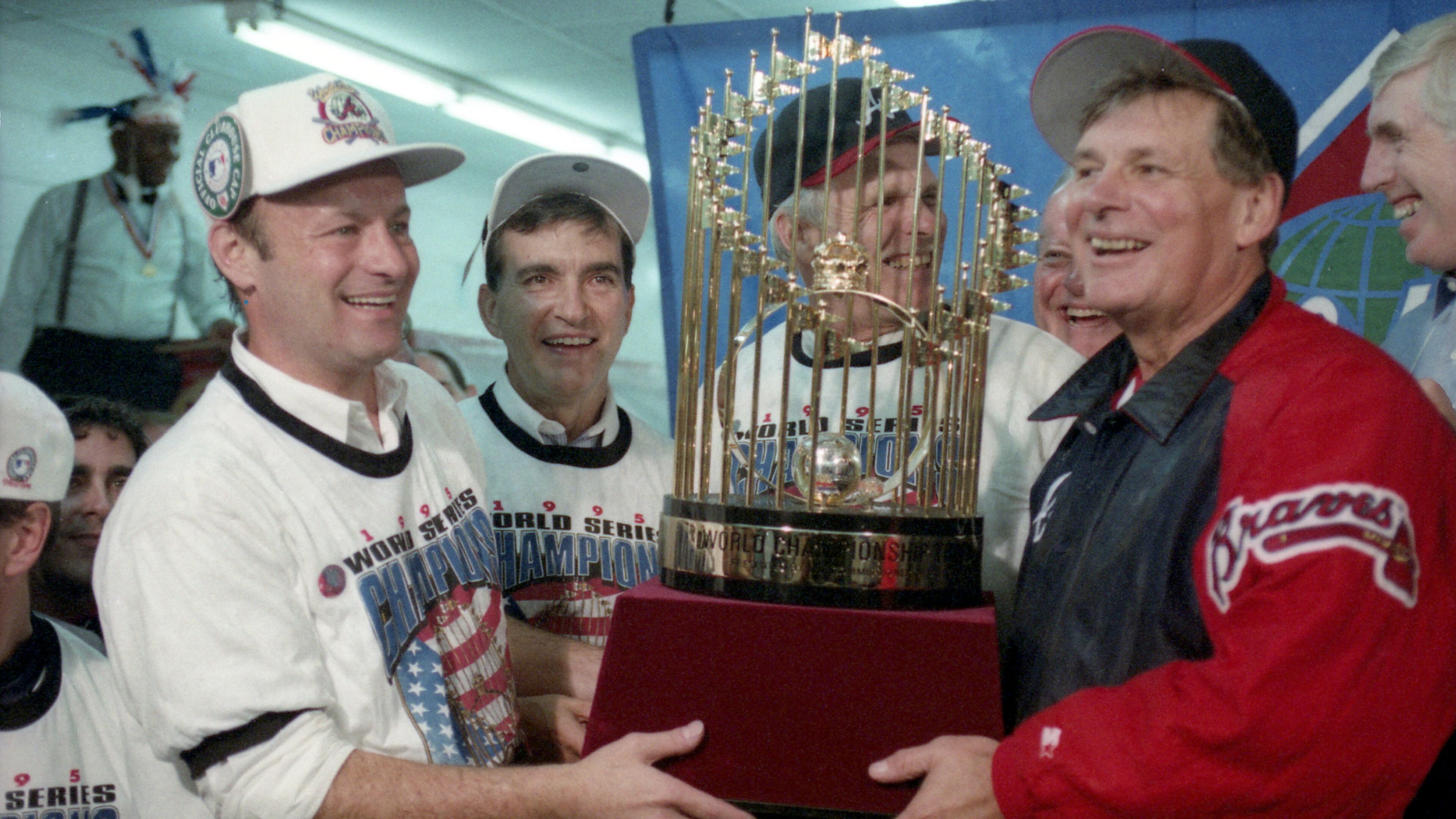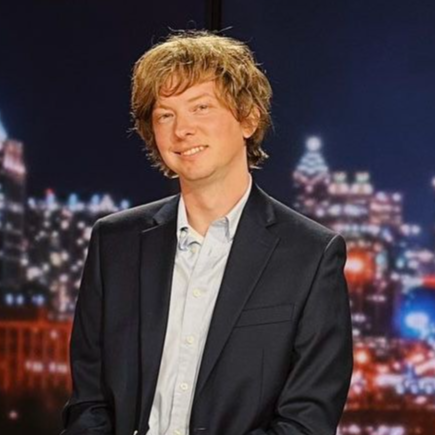1995 Braves: Brian Snitker remembers road to unprecedented run
Editor's note: The Atlanta Journal-Constitution will spend the year looking back at the 25th anniversary of the 1995 World Series champion Atlanta Braves. In a season-long series that will run through October, we will capture all the key moments and hear from the participants as they share their memories. Today's installment focuses on current Braves manager Brian Snitker, who was a minor-league coach in the organization in 1995 and spent the entire postseason with the major-league team in Atlanta.
It’s impossible to tell the Braves’ story without Brian Snitker, a man who’s served the franchise for more than 40 years. He’s one of the few people who saw the beginnings of the franchise’s first historic run and is now overseeing what the team hopes is the start of another one.
Snitker was first hired as a coach by Hank Aaron in 1981 and served in a variety of capacities before taking over as the Braves’ manager in May 2016. He’s since helped the organization restore its winning ways, overseeing the past two division-winning clubs.
Snitker, more than anyone, understands the franchise and how it wants to be represented. He constantly references the team’s finest years – their unmatched run in the 1990s – and invokes names of all the team’s greats when teaching baseball lessons or analyzing the game. Many of those players, constantly celebrated in Braves history, worked with Snitker as prospects.
That’s made him an ideal person to usher in the next wave of star-studded Braves teams. He saw the organization build from the ground up to produce its ’90s glory – and most notably, its 1995 World Series championship.
“A lot went into it,” Snitker said. “I remember the culmination of this whole thing when Bobby (Cox), Stan (Kasten), Paul Snyder, everybody started putting this thing together. The work, how they did it. They built through scouting and player development. And I saw it. The hard work they did, the emphasis on players. Everything they did. It was pretty cool to see it come to fruition.”
Snitker was the hitting coach for Single-A Durham in 1995. He, alongside his other minor-league coaching colleagues, was with the big-league team throughout their playoff run. The Braves eliminated the Rockies (3-1) and Reds (4-0) before topping the Indians (4-2) to achieve immortality.

“I was here at the World Series,” Snitker recalled. “I was at all the playoff games. Back then, it was a big deal, and they had all the staff members in. We all took part. Had parties and all that stuff. And it was cool because I had a lot of the guys (on that team) in the minor leagues. It was cool. It was really neat. I remember that last out being made (in the deciding Game 6). You’re proud. This is the Atlanta Braves. It was a big deal.”
Tom Glavine was named World Series MVP after allowing only two runs across his pair of starts (14 innings). Glavine and John Smoltz grew up in the Braves’ farm system, becoming two of the franchise’s homegrown Hall of Famers. Joined by free-agent addition Greg Maddux, the top of the Braves’ rotation became one of the more memorable trios in sports history from 1993-2002.
Snitker had a front-row seat to their brilliance. He coached Smoltz and Glavine in instructional league. Their growth was a defining development in Braves history for numerous reasons, but Snitker noted that it showed the organization what went into nurturing Hall of Fame talents.
“They were both so way above their years, so mature,” he said. “They loved to compete. They were ballplayers. It was fun being around them. I had them both in the instructional league. I was the bullpen coach here when Smoltzie was here. We didn’t look at them and say, ‘They’re going to be Hall of Famers.’ We didn’t know that. Knucksie (Phil Niekro) was around, and Hank (Aaron), but we really didn’t know what Hall of Famers looked like. Now we do. We’ve developed Hall of Famers here. But they were special. Their makeup, the intensity, the desire, all the intangibles they had.”
The Braves were considered a franchise with enviable culture. They were the poster child of stability. They continually restocked their farm and shuffled around MLB pieces to best surround their foundation – the three pitchers and third baseman Chipper Jones.
It was a perfect, likely unrepeatable setup. It rewarded the Braves with 14 consecutive division titles, and even if winning only one championship was a disappointment, the resounding string of success established the Braves as a premier brand. The winning and TBS national audience made the Braves one of the world’s more popular teams. The Braves became baseball’s standard in seemingly every way, even if the formula (four core Hall of Famers, a Hall of Fame manager and Hall of Fame executive) was a one-time bolt of lightning.
“This has always been a great organization because of the people,” Snitker said. “It’s always been about the people, how you are treated. (When the team struggled before 1991), it wasn’t for lack of work or effort or anything like that, it just took – with Bobby, Stan and Paul – they came in here and really put an emphasis on player development.

“We’d developed good players in the past. I think it was good when John (Schuerholz) came (as general manager), and he supplemented that with outside trades and things like that. All of a sudden, we became real. We had high expectations as we were developing players to get to the major leagues. We did a really good job in our minor leagues to prepare guys to play, too. When they came up here, they were ready to go. They were ready to be major leaguers.”
Fast-forwarding to the modern day, the Braves’ new spring training facility in North Port, Florida, is covered in mementos from those years. Paintings, photos and quotes from those iconic Braves decorate the stadium.
Snitker remembers the patience required as the Braves built success. Jones suffered an ACL tear in 1994. Smoltz posted a 5.48 ERA in his first season (12 games) and even had an ERA over 4.00 the year before the Braves became champs. Glavine’s early struggles are well-documented: He had a 4.76 ERA across his first two seasons, even taking a league-high 17 losses in his first full season.
For Snitker, perspective is everything. The Braves have ushered in youngster after youngster in the past few years. Each has dealt with some form of adversity. Snitker preaches, almost daily, that development takes time. He saw it firsthand in the days before the Braves cemented themselves as winners.
“You remember where those guys were,” he said. “I’ve talked to Tommy and John, some of those guys, and they’re like, ‘Some of these guys, they’re doing a lot better than I did at that point in my career.’ And I don’t know that these guys understand how long that process is and what it takes and how many years it takes to get there. This is still a very young team. These guys are still figuring things out. It took those guys a while – a lot of innings, at-bats – until they really felt like they were there.”
Snitker hopes such patience pays off again. The Braves have won consecutive division titles, boast a farm system deep with pitching and seem set to be competitive for the foreseeable future. The franchise has longed for the long-term success it assembled from 1991-2005.
Those years molded what’s commonly called “Braves Country,” a reference to the team’s wide-reaching fan base across the South (and the country, given how many were exposed to the Braves through TBS). Snitker credits that run for building what he described as a committed, passionate, generational following.
“This Braves country and what it is, I didn’t realize how strong the Braves nation was until I took this job,” he said. “All the years I was a coach, here and everything, it’s unbelievable what Braves nation is. The fan base and the passion they have. The outreach it has. How many states it encompasses. And that’s where it started, back in the ’90s, where the whole thing began.”
» About the series
» FURMAN BISHER: Atlanta's finest moment
» SPRING TRAINING: Starting with replacement players
» MARK BRADLEY: A subdued season, a giddy ending
» BUILDING THE BRAVES: How the championship team was built
» CHIPPER JONES: 'No bigger beneficiary of '94 strike than me'
» ANNOUNCERS: Championship call years in the making
» DAVE SHOTKOSKI: Remembering pitcher killed in spring training
» MARQUIS GRISSOM: Dream comes true for Atlanta native
-♦-



